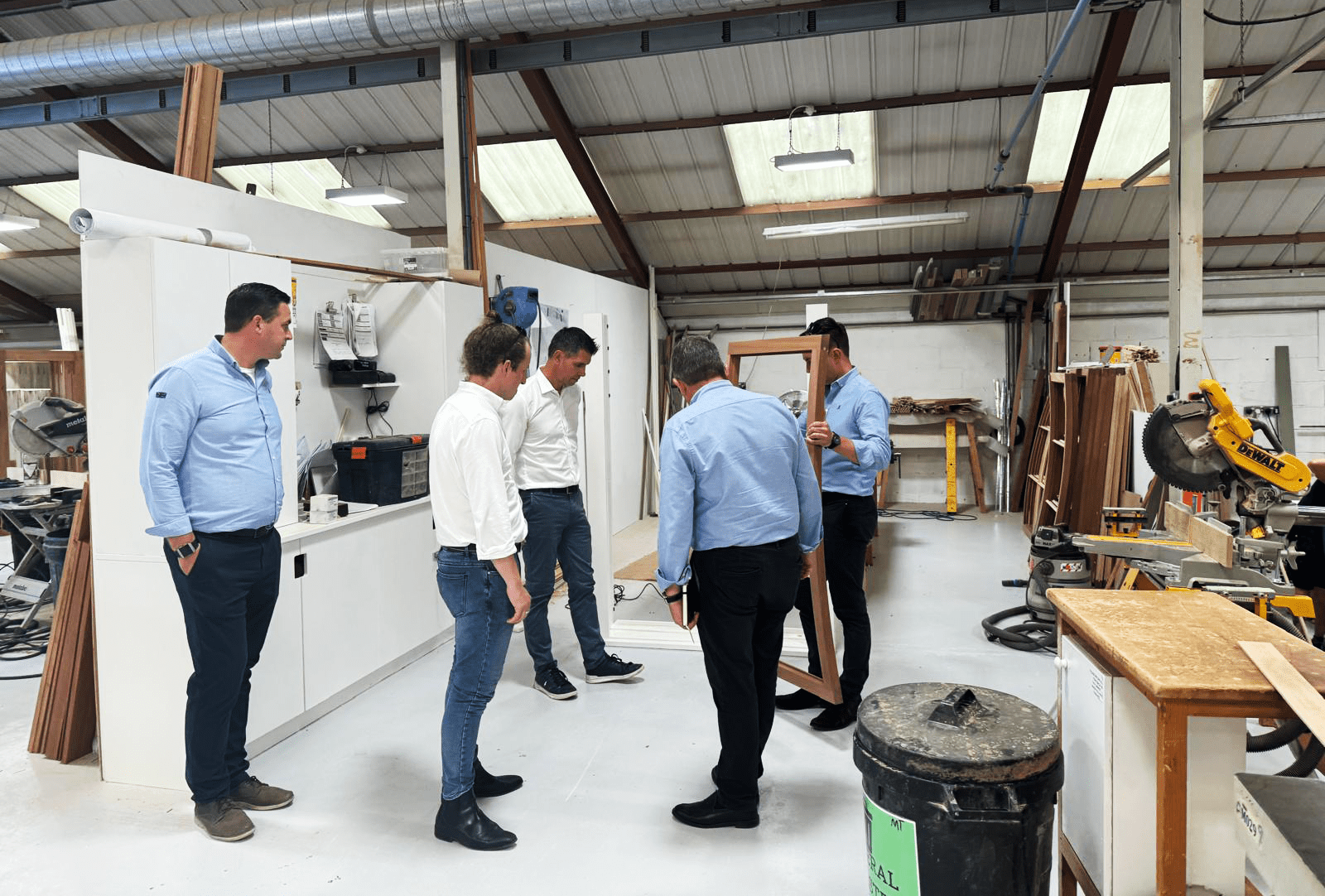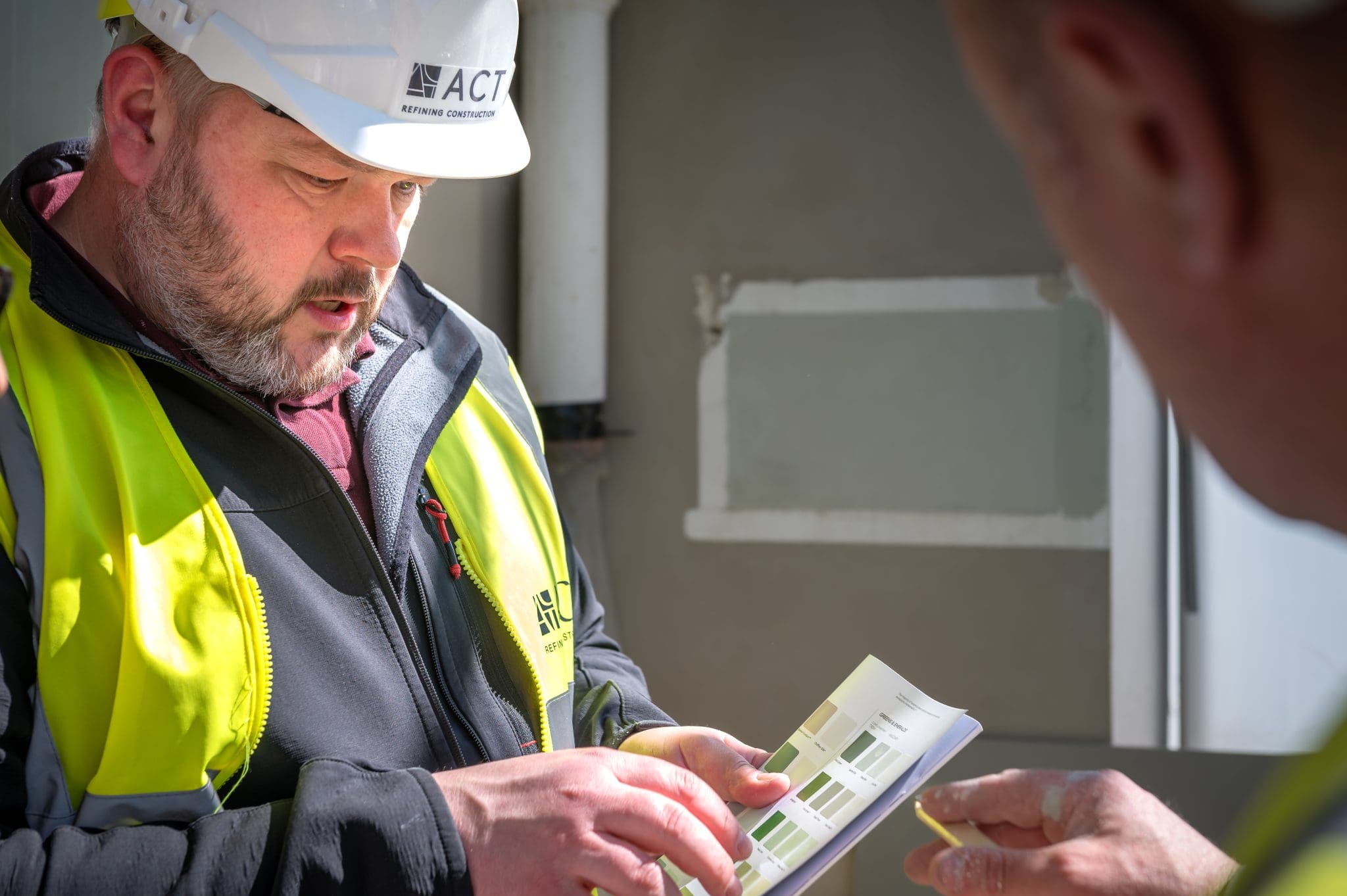Our website uses cookies to improve your experience. By continuing to browse the site, you are agreeing to our use of cookies as per our privacy policy.
Inside ACT
The Value of Subcontractor Collaboration and Partnership
15 October 2025
|
ACT Design Management Team
In high-end construction, success depends on precision, teamwork and shared accountability. Every project involves a network of specialists whose combined expertise turns design ambition into reality. Among them, subcontractors hold a pivotal position. Effective subcontractor collaboration ensures that ideas move seamlessly from paper to site, keeping craftsmanship, safety and timelines on track.
In the delivery of complex, premium projects, subcontractors play a critical role in bridging the gap between design intent and on-site execution. Their responsiveness, expertise, and willingness to collaborate often determine whether a project progresses smoothly or faces costly setbacks.
At ACT, we view subcontractors not as suppliers, but as partners in achieving excellence. Our Design Management team share five key ways subcontractors can help main contractors and architects deliver successful outcomes.
1. Be Responsive from Day One
Time is one of the most valuable resources in any construction programme. Subcontractors who engage proactively from the moment they are appointed, particularly during procurement, set the tone for a project’s efficiency. Timely responses to queries, schedules, and material lead times allow contractors and architects to progress without hesitation.
Takeaway: Swift engagement helps the entire team stay aligned and reduces unnecessary delays.
2. Host Workshops and Factory Visits
Inviting contractors and architects to workshops or factory visits provides invaluable insight into how a subcontractor operates. Observing manufacturing processes, installation techniques and quality control measures helps the wider team understand both the capabilities and the craftsmanship behind each package. These interactions foster confidence, respect and stronger collaboration across disciplines.
Takeaway: Opening the doors to collaboration allows everyone to contribute to better outcomes.

3. Communicate Openly and Honestly
Not every request can be achieved within the project’s constraints, and that’s acceptable provided it’s identified early. Transparency about potential challenges enables main contractors and architects to manage expectations with the client before issues escalate.
Takeaway: Honest dialogue builds trust and supports better, more informed decision-making.
4. Provide Samples and Data Sheets Early
Material samples and technical data sheets are vital for design validation, approvals and client assurance. They also form a key component of O&M documentation, ensuring traceability and compliance for all installed products. Prompt submission of these materials keeps approvals on schedule and avoids unnecessary bottlenecks later in the build.
Takeaway: Early sharing of product data keeps every stakeholder, from client to craftsman, working in sync.

5. Connect Us with Drafting Teams
Direct communication with drafting and technical teams is invaluable when addressing design changes or project-specific details. Fast, accurate clarifications prevent minor discrepancies from becoming larger coordination issues, helping maintain momentum on live projects.
Takeaway: Strong links with drafting teams enable faster, more efficient decision-making.
The Value of Partnership
Subcontractors are far more than a cog in the construction chain: they are integral to successful delivery. By being responsive, transparent, collaborative and detail-driven, subcontractors strengthen their relationships with main contractors and architects while elevating the overall quality of the build.
Ultimately, effective subcontractor collaboration is about partnership, not hierarchy. When subcontractors share expertise openly, align with the project vision and commit to collective problem-solving, the result is not just a completed project, it’s a shared achievement that reflects the very best of craftsmanship and collaboration in luxury construction.
Share this Article:
5 Ways Subcontractors Can Strengthen Collaboration and Deliver Excellence in High-End Construction Projects
Discover five key strategies from ACT’s Design Management Team on how subcontractors can enhance collaboration with main contractors and architects to ensure seamless delivery and exceptional quality in luxury residential construction.

